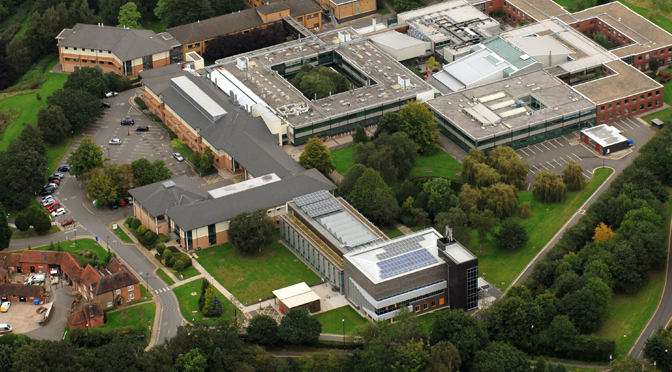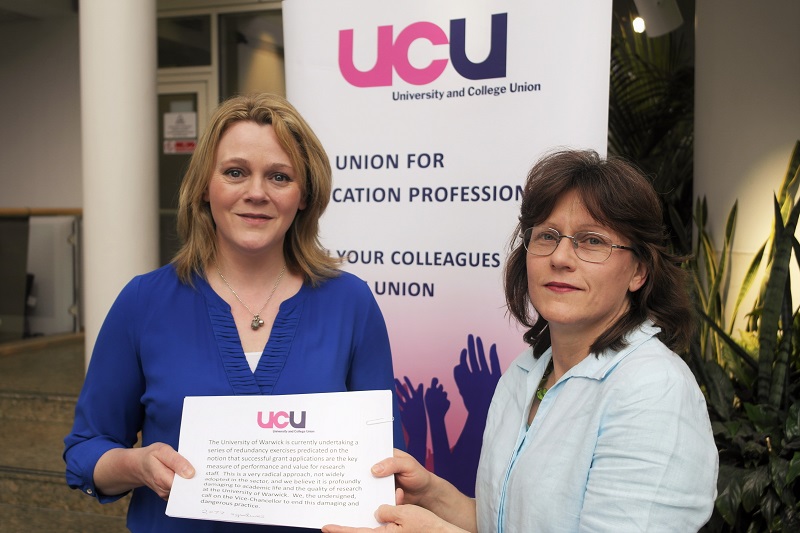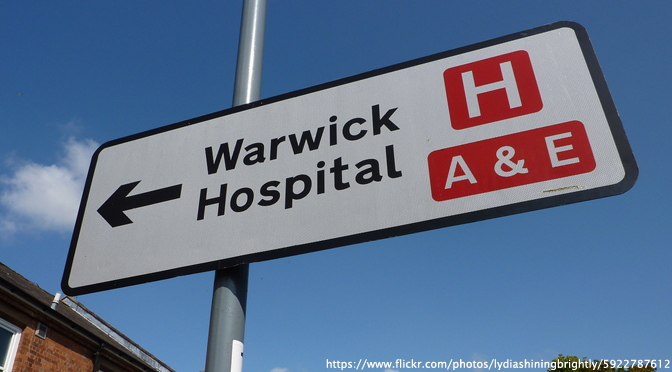University of Warwick assembly passes motions to condemn Higher Education Green Paper and to do no more than the absolute ‘minimum legal obligation’ to satisfy Prevent
Today a democratic Assembly called by staff at the University of Warwick passed two motions, one condemning Jo Johnson’s Higher Education Green Paper and the second requiring the University do no more than the absolute legal minimum to satisfy the Home Office’s Prevent program.
Green Paper
Speaking for the first motion, Dr. Laura Schwartz, Assistant Professor in Modern British History, stated that “this Green Paper is potentially the death knell of public higher education in this country”, directly threatening the University’s core educational mission.
The ‘Teaching Excellence Framework’ (TEF), colloquially described as the ‘Tuition Escalation Framework’, had been torn apart by Warwick’s own consultation submission as being potentially “damaging to the international reputation of our universities”.
Complaints included the possibility of academic rigor being sacrificed in order to promote higher student satisfaction and the burdening of students with unsustainable levels of debt thanks to rising tuition. Dr. Schwartz highlighted that opposition to the Green Paper has been widespread, including the Vice Chancellors at Cambridge, Oxford and other Russell Group institutions.
Prevent
The second motion targeted the Government’s Prevent program which requires University staff to report students they believed to be at risk of ‘radicalisation’, an instruction that has already led to the disproportionate and discriminatory targeting of Muslim and Black and Minority staff and students.
The motion under vote called on the Vice Chancellor to conduct meaningful consultation on prevent, in advance of its April 2016 submission to HEFCE. Experts on counter-terror legislation, policy and practice, voiced their discontent at the insidious nature of the confused prevent policy which had the potential to stifle academic freedom, while contradicting requirements under both the Human Rights and Education Acts.
The Assembly noted the widespread opposition to the policy on campus, with hundreds of University staff and students having signed an open letter to the Vice Chancellor in just over three weeks. The Assembly resolved to make sure that the University did no more than the absolute minimum to satisfy the requirements of Prevent.
As Dr. Jusine Mercer, Associate Professor in the Centre for Education Studies, noted: “The Prevent strategy… damages our community by fostering an environment of surveillance, paranoia and racism. It encourages the continual monitoring of both staff and students. It destroys the trust needed for a safe and supportive learning environment.”
The mood in the Assembly was overwhelmingly supportive of both motions with members of staff from across the university noting the ways in which the changes threaten the University’s public mission, and undermine academic freedom.
The Assembly at Warwick fits into a larger pattern of mobilization against the Green Paper and Prevent occurring at higher education institutions around the country.
Staff coming leaving the assembly were greeted by students who had gathered in solidarity. Both claim that the successful assembly is an important step in support for further action locally and nationally. Warwick for Free Education spokesperson, Hope Worsdale commented that “students are delighted by the outcome of the Assembly, and will continue in their actions alongside staff, to campaign for a free and progressive education system.”
Further information and background on the Green Paper:
Further information and background on Prevent








